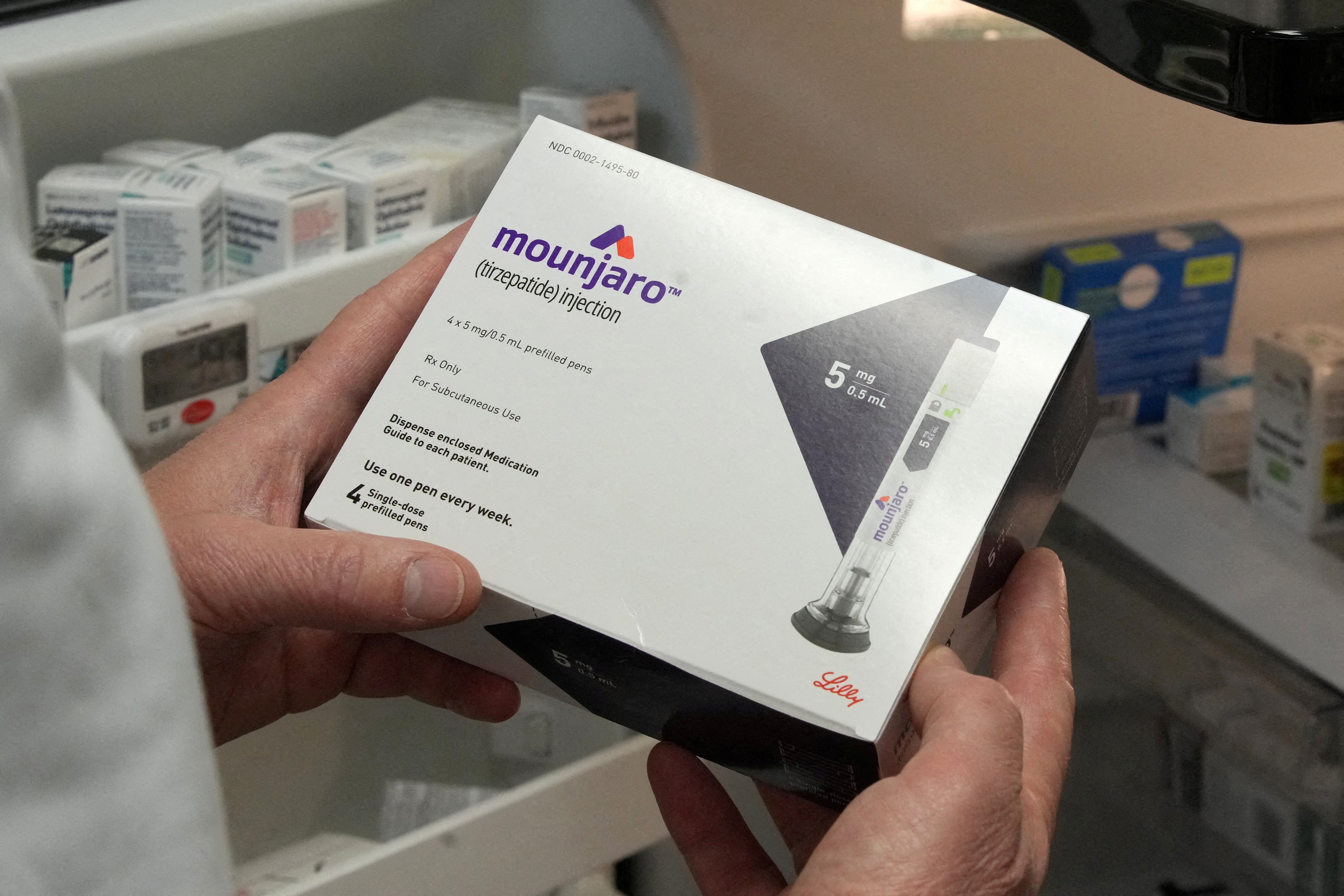NHS approved weight loss jab makes women lose more weight than men, analysis finds
In June the health service spending watchdog gave Mounjaro the green light to be used to help obese patients lose weight

Your support helps us to tell the story
From reproductive rights to climate change to Big Tech, The Independent is on the ground when the story is developing. Whether it's investigating the financials of Elon Musk's pro-Trump PAC or producing our latest documentary, 'The A Word', which shines a light on the American women fighting for reproductive rights, we know how important it is to parse out the facts from the messaging.
At such a critical moment in US history, we need reporters on the ground. Your donation allows us to keep sending journalists to speak to both sides of the story.
The Independent is trusted by Americans across the entire political spectrum. And unlike many other quality news outlets, we choose not to lock Americans out of our reporting and analysis with paywalls. We believe quality journalism should be available to everyone, paid for by those who can afford it.
Your support makes all the difference.Women tend to lose more weight than men when using certain weight loss jabs, according to analysis.
Mounjaro – also known as tirzepatide and made by Eli Lilly – was recommended to treat obesity on the NHS in England earlier this year.
Researchers at Eli Lilly analysed the results of their trials, which included 4,677 obese adults, 2,999 of whom were female and 1,678 male.
Their findings, presented at the annual meeting of the European Association for the Study of Diabetes in Madrid, pointed to a variation when it comes to gender.
Across all trials, tirzepatide was associated with significant weight loss when compared to the placebo group.
However, weight loss in females ranged from 11.5% to 27.6% of body weight, while in males it ranged from 8.8% to 18.9%.
Overall, women in the trials lost more weight – up to 24.6% – compared to men (18.1%).
Researchers said: “The safety profile was broadly similar by sex, but a numerically higher incidence of nausea and vomiting was observed in females.”
Tirzepatide is a glucagon-like peptide-1 (GLP-1) agonist, a family of medications that help manage blood sugar.

Other GLP-1 agonists include semaglutide – sold under the brand names Wegovy, Ozempic and Rybelsus.
In September last year, the National Institute for Health and Care Excellence recommended the NHS in England should offer Mounjaro as an option for type 2 diabetics who could not tolerate metformin.
In June, the health service spending watchdog also gave it the green light to be used to help obese patients lose weight.
In the same month it was warned people who are using anti-obesity medication for cosmetic weight loss are driving a global shortage of the drugs.
Medics warned that the shortages could lead to “serious consequences” with continued high demand potentially leading to fake versions of the drugs.
They called on industry, regulators, clinicians, patients and the public to “step up actions now” in a bid to resolve the issue.
Glucagon-like peptide-1 (GLP-1) agonist are a family of medications that help manage blood sugar and include brands Ozempic, Wegovy and Saxenda.
There have been global shortages of some of the drugs since 2022, with reports that people who are not obese or overweight are using them to lose weight.
Continued high demand has also increased the risk of fake products entering the market, the EMA suggests, leading to “serious consequences” for public health.
Join our commenting forum
Join thought-provoking conversations, follow other Independent readers and see their replies
Comments